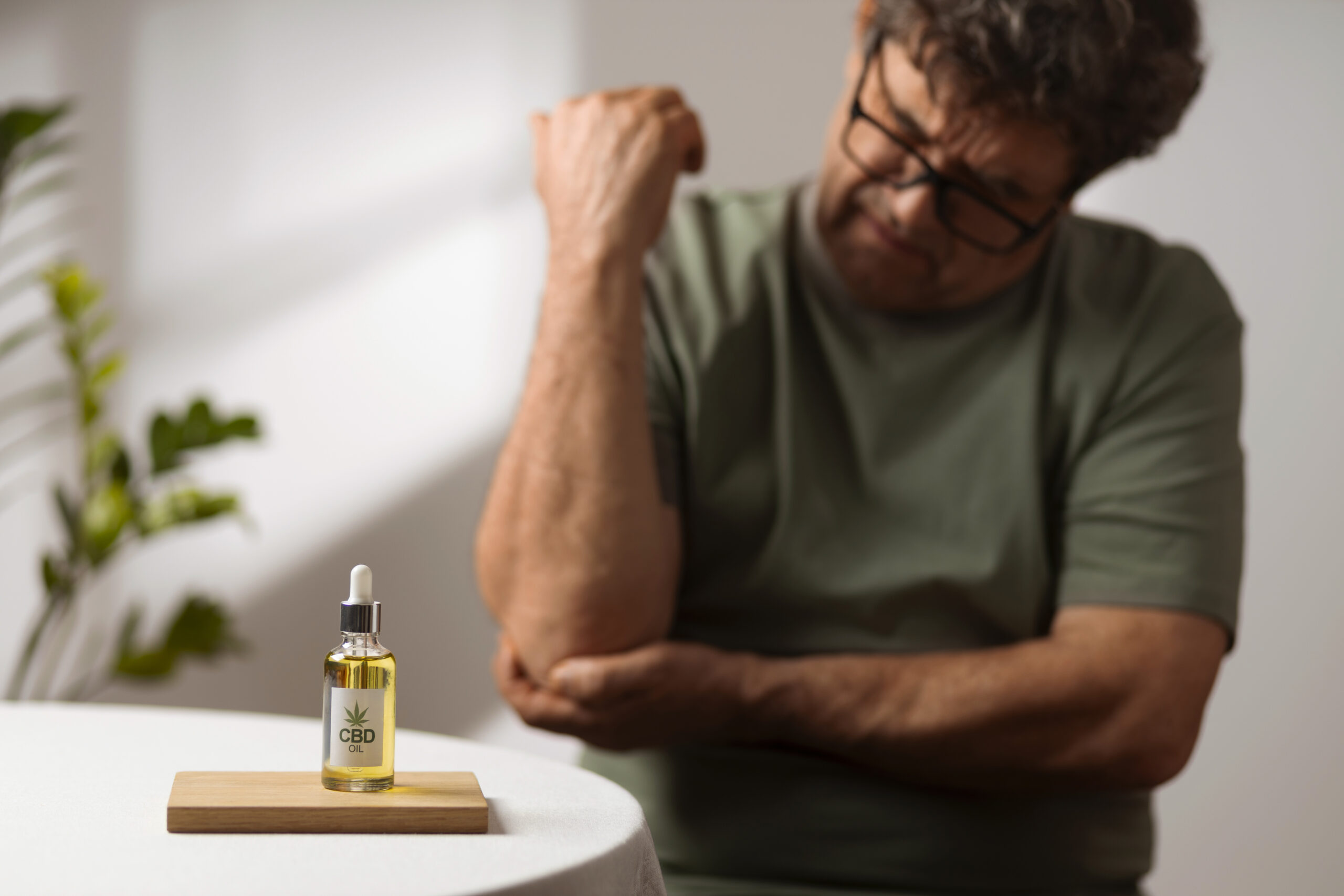Morning muscle cramps are a common and often frustrating experience. They typically occur in the legs, especially the calves, but can also affect other muscles. These involuntary contractions can jolt you awake or strike just as you’re getting out of bed, leaving you in pain and discomfort. While occasional cramps are harmless, frequent morning cramps may indicate underlying issues that need attention. Understanding their causes and exploring the best treatment strategies can help you manage and prevent them effectively.
Common Causes of Morning Cramps
1. Dehydration
Dehydration is a leading cause of muscle cramps. When your body lacks sufficient fluids, electrolyte imbalances can develop, affecting muscle function and leading to cramps.
2. Electrolyte Imbalances
Low levels of essential electrolytes like potassium, calcium, and magnesium can trigger muscle contractions and lead to cramping. These minerals are essential for both contracting and relaxing muscles.
3. Poor Circulation
Reduced blood flow to the muscles, especially after prolonged inactivity during sleep, can lead to cramping. Poor circulation may be linked to conditions like peripheral artery disease (PAD) or diabetes.
4. Muscle Fatigue and Overuse
Muscles that are overworked or fatigued from exercise or physical labor may cramp up during the night or early morning. This can also occur after sudden changes in physical activity levels.
5. Nerve Compression
Nerve compression in the lower back or neck can lead to referred pain and cramping in the legs and other muscles. Conditions like spinal stenosis or herniated discs may contribute to this issue.
6. Medications
Muscle cramps are an adverse effect of some drugs, including beta-blockers, statins, and diuretics. These drugs may interfere with electrolyte balance or muscle function.
7. Pregnancy
Leg cramps are common in pregnant women, especially during the third trimester. Hormonal changes, weight gain, and increased pressure on blood vessels can all contribute to cramping.
8. Sleep Position
Sleeping in an awkward position or with limited movement can cause muscles to stiffen and cramp upon waking.
Best Ways to Treat Morning Cramps
1. Stretching Exercises
Stretching is one of the most effective ways to relieve cramps. Gentle stretches help relax the muscle and restore normal function.
- Calf Stretch: Place your hands against a wall while standing. While keeping the back leg straight, place one foot forward and the other back. Press your heel into the ground to stretch the calf muscle.
- Hamstring Stretch: With one leg outstretched, sit on the floor. Reach forward to touch your toes, keeping the leg straight.
- Quadriceps Stretch: Stand on one leg and pull the opposite foot toward your buttocks, holding your ankle with your hand.
2. Hydration
Staying hydrated is crucial for preventing and treating cramps. Water helps maintain proper muscle function by regulating electrolyte balance.
- Tip: Try to consume eight glasses of water or more each day. You can also consume beverages rich in electrolytes, such as sports drinks or coconut water.
3. Massage and Warm Compress
Massaging the affected area can help increase blood flow and relieve tension in the muscle. Applying a warm compress or taking a warm bath can also help relax the muscle.
- Tip: Use a foam roller or massage ball to target specific muscle groups.
4. Diet and Nutrition
A balanced diet rich in essential nutrients can help prevent cramps. Pay attention to foods that are high in calcium, magnesium, and potassium.
- Foods to Include:
- Bananas, oranges, and avocados (potassium)
- Dairy products and leafy greens (calcium)
- Nuts, seeds, and whole grains (magnesium)
5. Over-the-Counter Remedies
Pain relievers like ibuprofen or acetaminophen can help manage pain and inflammation associated with cramps. Muscle relaxants may also be recommended for severe or persistent cramps.
- Tip: Always consult a doctor before taking new medications, especially if you have underlying health conditions.
6. Adjusting Sleep Position
Modifying your sleep position can help reduce the risk of morning cramps. Avoid positions that put pressure on your muscles or restrict blood flow.
- Tip: Use pillows to support your legs and back. A body pillow can help maintain proper alignment while sleeping.
7. Wearing Compression Garments
Compression socks or sleeves can improve circulation and reduce the risk of cramping, especially for people who stand or sit for long periods.
- Tip: Wear compression garments during the day and remove them before sleeping.
8. Medications and Supplements
Your doctor could suggest particular treatments or modifications if cramps are linked to a medical condition or adverse drug reactions.
- Magnesium Supplements: Magnesium is often used to treat muscle cramps, especially for people with a deficiency.
- Potassium Supplements: If low potassium levels are contributing to cramps, potassium supplements may be helpful.
9. Physical Therapy
For chronic or severe cramps, physical therapy may be beneficial. A physical therapist can develop a personalized exercise plan to improve muscle strength and flexibility.
- Tip: Focus on exercises that target the specific muscle groups affected by cramps.
Preventive Measures for Morning Cramps
1. Regular Exercise
Engaging in regular physical activity can help strengthen muscles and improve circulation, reducing the risk of cramps.
- Tip: Incorporate low-impact exercises like walking, swimming, or yoga into your routine.
2. Warm-Up and Cool-Down
Before exercising, always warm up, and later, cool down. Stretching before bed can also help prevent cramps during the night.
- Tip: Spend at least 5–10 minutes stretching after workouts and before bedtime.
3. Maintain a Balanced Diet
Eating a well-rounded diet that includes plenty of fruits, vegetables, whole grains, and lean proteins can help maintain proper muscle function.
- Tip: Limit processed foods and high-sodium snacks, which can deplete potassium levels.
4. Avoid Overexertion
Overworking your muscles can lead to fatigue and increase the risk of cramping.
- Tip: Listen to your body and take breaks when needed during physical activities.
5. Stay Hydrated
Consistently drinking water throughout the day can help prevent dehydration and maintain electrolyte balance.
- Tip: Carry a water bottle with you and sip regularly, especially in hot weather or during exercise.
When to See a Doctor
While occasional cramps are normal, frequent or severe cramps may indicate an underlying medical condition. Consult a doctor if you experience:
- Cramps that persist despite home remedies
- Cramps accompanied by swelling, redness, or weakness
- Cramps linked to medication side effects
- Signs of a serious condition, such as deep vein thrombosis (DVT)
Conclusion
Morning cramps can be painful and disruptive, but they are often manageable with simple lifestyle changes and preventive measures. Staying hydrated, maintaining a balanced diet, and engaging in regular stretching and exercise can go a long way in reducing the frequency and severity of cramps. For persistent or severe cases, seeking medical advice is crucial to identify and address any underlying issues. By taking proactive steps and understanding the best ways to treat and prevent cramps, you can start your mornings pain-free and energized.



